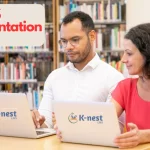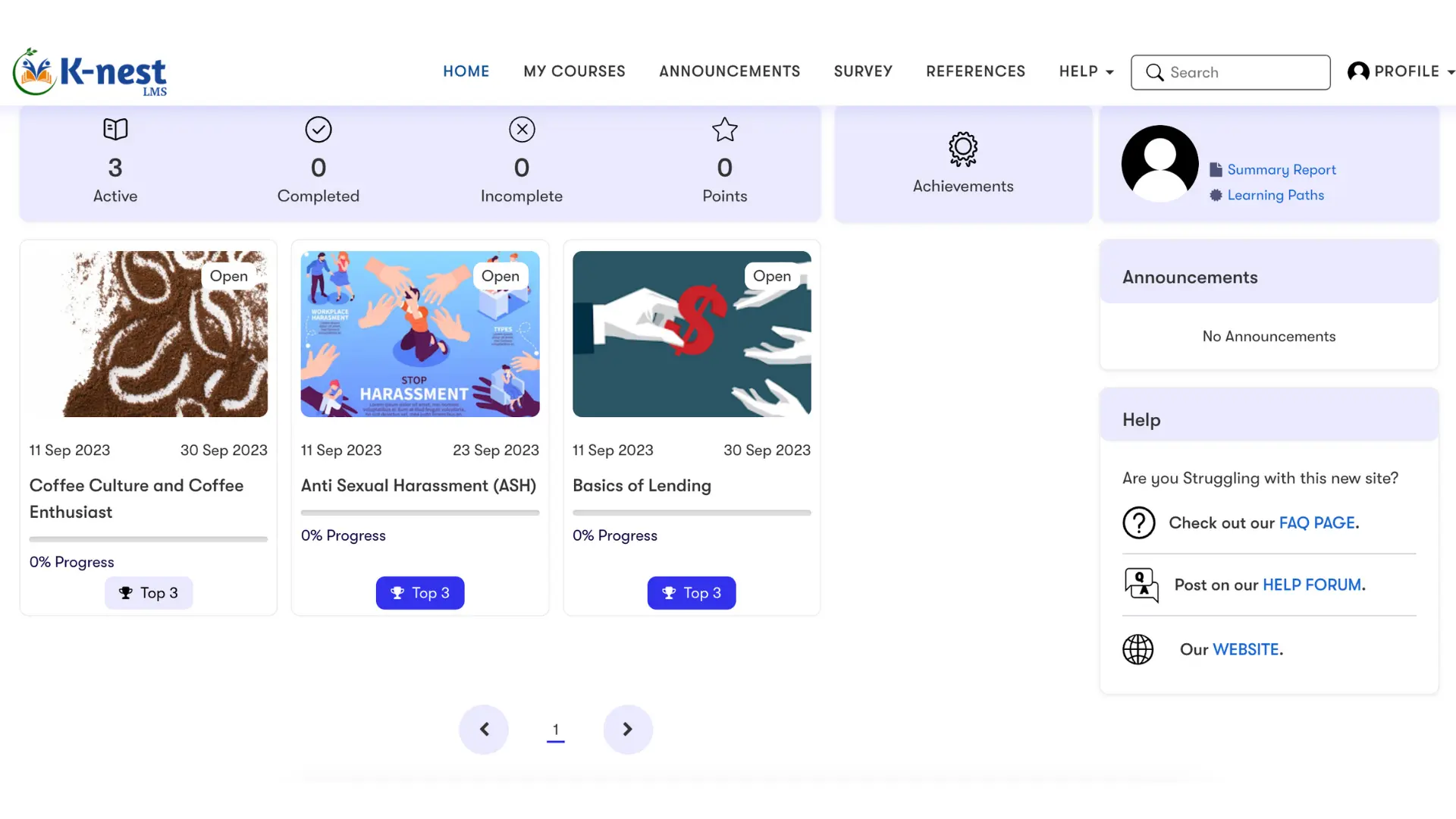
Free LMS Implementation Checklist : A Step-by-Step Guide
April 2, 2024
What Is a Learning Management System (LMS)? | Definition
April 18, 2024A Guide to Developing a Productive Team Environment
Strong bonds between coworkers and teamwork are essential to a successful organization. These relationships are built on trust, which promotes a sense of safety, dependability, and respect for one another.
This results in higher output, better problem-solving skills, and a happier workplace environment.

What is Building Trust in the Workplace?
Building trust in the workplace is an ongoing process of earning the confidence of your colleagues in your character and work ethic. It's woven into the fabric of daily interactions and has a significant impact on team dynamics. When trust is present, employees feel comfortable sharing ideas, taking risks, and supporting one another. This collaborative spirit leads to higher-quality work and a more positive work environment.
Why is Trust Important?
Trust benefits both individuals and organizations:
- Increased Productivity: Trusting teams work more effectively together, leading to faster project completion and improved results.
- Enhanced Problem-Solving: Open communication fostered by trust allows for diverse perspectives and innovative solutions to challenges.
- Reduced Conflict: Trust minimizes misunderstandings and promotes a willingness to work through disagreements constructively.
- Stronger Employee Engagement: Feeling valued and respected by colleagues boosts morale and job satisfaction.
- Improved Decision-Making: Trust in leadership allows employees to confidently contribute to decision-making processes.
13 Techniques for Building Trust in the Workplace
These strategies can be applied by both individual employees and leaders to cultivate a culture of trust:
- Build Trust Gradually: Trust takes time to develop. Be genuine and consistent in your actions, letting your trustworthiness speak for itself.
- Be Inclusive: Involve colleagues in meetings, brainstorming sessions, and social activities. Foster a welcoming and respectful environment where everyone feels valued.
- Be Honest: Open and honest communication builds trust. Share your opinions constructively and strive for transparency in your actions.
- Keep Your Promises: Deliver on your commitments to establish yourself as a reliable colleague. Be upfront if you lack the time or resources to take on a task.
- Maintain Integrity: Uphold strong ethical values in your work. Avoid compromising your integrity, as this can erode trust.
- Lead by Example: Leaders who embody the behaviors they expect from their team inspire trust and respect.
- Trust Your Coworkers: Micromanagement breeds distrust. Give your team the autonomy to work within established parameters.
- Help Your Team: Offer support and mentorship to colleagues. Kindness and a willingness to help build strong bonds.
- Be Open to Learning: Recognize the expertise of others and seek their input. A willingness to learn fosters respect and collaboration.
- Take Responsibility: Own your mistakes and be accountable for your work. This shows commitment and integrity.
- Listen Actively: Pay attention to your colleagues' ideas and concerns. Feeling heard fosters respect and strengthens relationships.
- Get to Know Your Team: Show genuine interest in your colleagues as people. Understanding them on a personal level can improve communication and collaboration.
- Use Feedback Constructively: Solicit feedback from colleagues and actively address their concerns. This demonstrates value for their input and a commitment to improvement.
Table: Building Trust: Practical Tips
|
Action |
Benefit |
|
Deliver on commitments |
Establishes credibility and reliability. |
|
Be transparent in communication |
Fosters openness and builds trust. |
|
Admit mistakes and take ownership |
Shows accountability and integrity. |
|
Offer help and support to colleagues |
Creates a positive and collaborative work environment. |
|
Actively listen and be receptive to feedback |
Demonstrates respect for colleagues' perspectives. |
Building trust in the workplace is an ongoing process that requires consistent effort from everyone. By incorporating these techniques, you can create a more positive, productive, and successful work environment for yourself and your team.
Knest LMS: Your Partner in Building Trust Through Effective Learning and Collaboration
While this blog post has explored various strategies for building trust in the workplace, fostering a culture of continuous learning can significantly amplify these efforts. This is where Knest LMS comes in.

Knest LMS: Features that Foster Trust
- Transparency and Shared Knowledge: Knest LMS provides a centralized platform for storing and delivering training materials. This ensures everyone has access to the same information, promoting transparency and reducing confusion.
- Collaboration and Teamwork: Knest LMS facilitates teamwork through features like discussion forums, group projects, and wikis. Employees can learn from each other, share best practices, and build trust through collaboration.
- Recognition and Appreciation: The LMS allows for the creation of recognition programs that acknowledge and reward employee achievements. Public recognition fosters trust and motivates employees to maintain high standards.
- Data-Driven Decision Making: Knest LMS tracks learner progress and engagement, providing valuable data for identifying knowledge gaps and tailoring training programs. This data-driven approach demonstrates a commitment to employee development, building trust in leadership.
Here's how Knest LMS can be implemented to address specific trust-building challenges:
-Scenario: New Hire Onboarding
- Challenge: New hires may feel unsure of their roles and lack trust in their ability to contribute.
- Knest LMS Solution: Create a comprehensive onboarding program within the LMS that introduces new hires to company culture, policies, and procedures. This equips them with the knowledge and confidence to succeed, fostering trust from the outset.
Scenario: Remote Work
- Challenge: Physical distance can create feelings of isolation and hinder trust-building among remote employees.
- Knest LMS Solution: Utilize the LMS's discussion boards and collaborative features to encourage communication and knowledge sharing among remote team members. This fosters a sense of connection and builds trust despite physical separation.
Building trust in the workplace is an ongoing endeavor. By combining effective communication, a commitment to transparency, and a focus on continuous learning, organizations can create a culture where employees feel valued, respected, and empowered. Knest LMS serves as a valuable tool in this process, providing the platform and features necessary to cultivate trust and unlock the full potential of your team.
Contact K-nest LMS today for a free demo!



